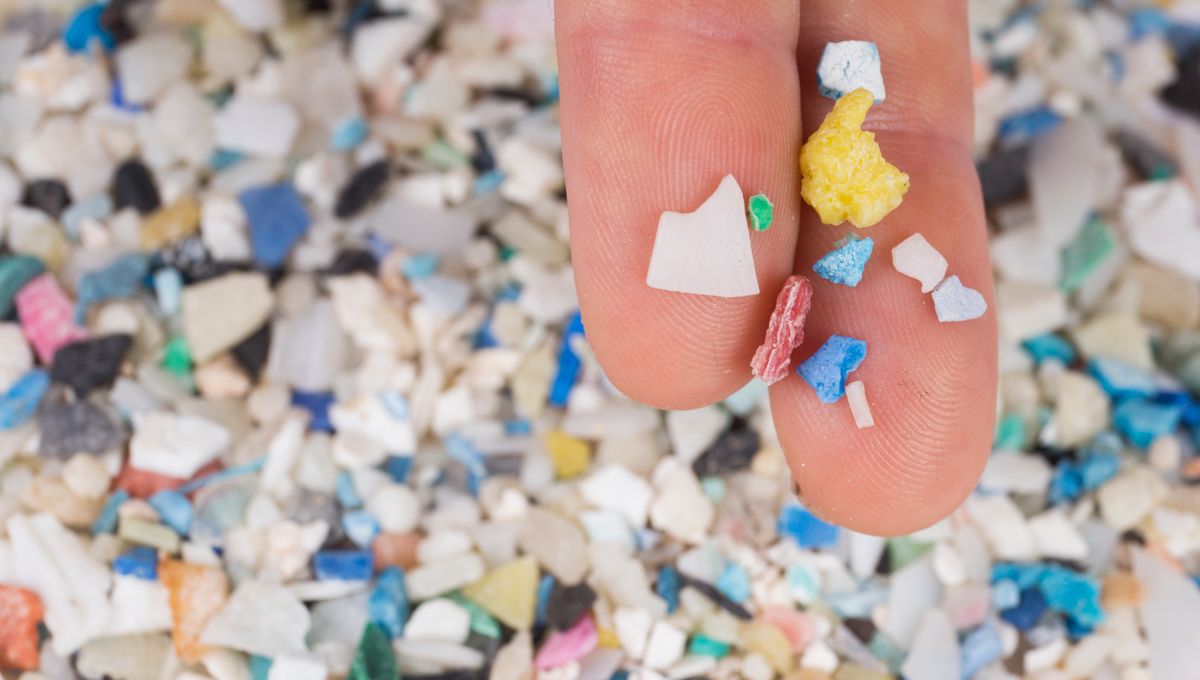
Microplastics can accumulate in the brains of mammals and even lead to behavioral changes, according to a new study. This not only adds to the growing body of evidence about the harm that microplastics are doing to our environment, but crucially provides new insight into what they could be doing to our bodies as well.
Plastic pollution is a huge environmental concern. In particular, tiny pieces of microplastic have been found everywhere from our oceans to the atmosphere, and even inside human tissues like the lungs and heart. What’s less clear, though, is exactly what harm this could be doing to our bodies, and a new study has produced some concerning results on that score.
A team led by University of Rhode Island professor Jaime Ross wanted to learn more about how these microplastics accumulate in the brains of mammals, the inflammation this could cause, and the potential impact on behavior.
The researchers gave mice drinking water contaminated with different concentrations of microplastics over a three-week period. They used mice of different ages to see whether the effects would vary in younger or older animals.
As well as indications of inflammation – signified by altered levels of immune markers – in the brains and livers of the mice, the team saw changes in their behavior, which were particularly apparent in the older animals. The behavioral changes mimicked symptoms you might expect to see in patients with dementia.
“To us, this was striking. These were not high doses of microplastics, but in only a short period of time, we saw these changes,” Ross said in a statement. As arresting as the findings undoubtedly were, Ross explained that there were still many questions to be answered about how the microplastics were causing these effects: “Are you more susceptible to systemic inflammation from these microplastics as you age? Can your body get rid of them as easily? Do your cells respond differently to these toxins?”
Further analysis by the team showed that, even with this short period of exposure, the microplastic particles had started to build up within every major organ in the mice’s bodies. Food for thought, especially when you consider that research earlier this year suggested each of us could be inhaling as much as a credit card’s worth of plastic every week.
“Given that in this study the microplastics were delivered orally via drinking water, detection in tissues such as the gastrointestinal tract, which is a major part of the digestive system, or in the liver and kidneys was always probable,” Ross explained.
But the brain is protected by a near-impenetrable boundary called the blood-brain barrier, which should make it harder to access. The team found that microplastics had infiltrated deep into the brain’s tissues, which tracks against research published earlier this year showing that microplastics can cross the blood-brain barrier in as little as two hours.
Once inside, Ross suggests that microplastics cause a decrease in the levels of a brain protein called GFAP (glial fibrillary acidic protein). “A decrease in GFAP has been associated with early stages of some neurodegenerative diseases, including mouse models of Alzheimer’s disease, as well as depression. We were very surprised to see that the microplastics could induce altered GFAP signaling.”
It’s something that will be investigated more in future work. And now that even the remotest parts of our planet are seemingly unable to escape contamination with microplastics, research like this – which seeks to better understand how humanity’s plastic habit could be coming back to bite us – is more urgently needed than ever.
The study is published in the International Journal of Molecular Sciences.
Source Link: How Microplastics In The Brain Could Have The Power To Change Our Behavior